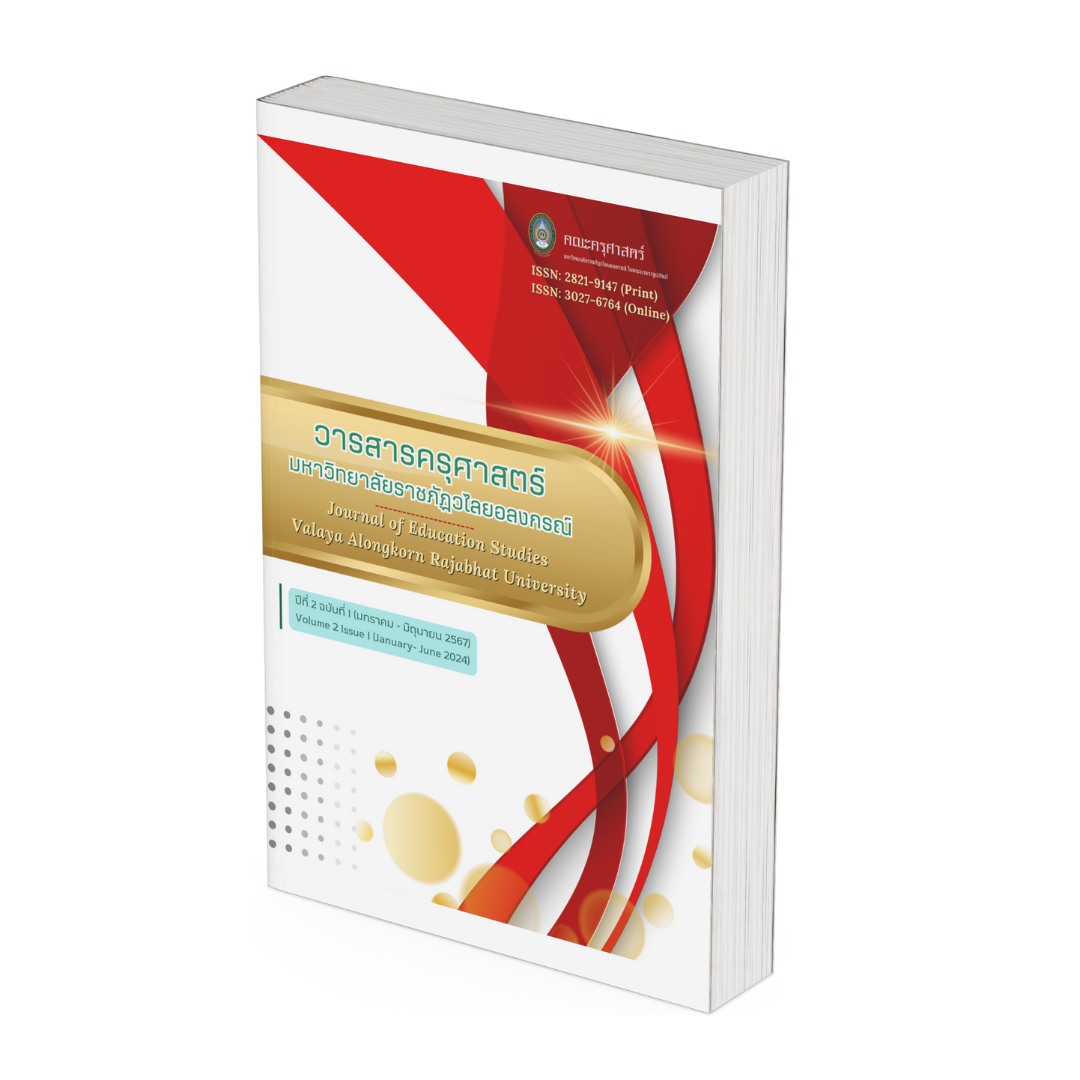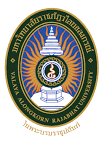แนวโน้มของการสอนแบบการสืบเสาะหาความรู้ในวิทยาศาสตร์
คำสำคัญ:
การศึกษาแนวโน้ม, การสอนแบบการสืบเสาะหาความรู้, วิทยาศาสตร์ศึกษาบทคัดย่อ
บทความนี้ มีวัตถุประสงค์เพื่อศึกษาแนวโน้มของการสอนแบบการสืบเสาะหาความรู้ในวิทยาศาสตร์ในวารสาร Journal Science Teacher Education (JSTE) ซึ่งเป็นวารสารสำคัญของสมาคมวิทยาศาสตร์ครูวิทยาศาสตร์ศึกษาระยะเวลา 5 ปี ตั้งแต่ปี ค.ศ. 2018-2022 วิธีการทบทวนวรรณกรรมอย่างเป็นระบบ ในการวิเคราะห์และสังเคราะห์ข้อมูลงานวิจัย ประเด็นที่ได้ทำการศึกษา ได้แก่ ประเทศที่มีการสอนแบบสืบเสาะหาความรู้ กลุ่มเป้าหมายที่เกี่ยวข้องกับการสอนแบบสืบเสาะหาความรู้ กลยุทธ์การพัฒนาผู้สอนในการสอนแบบสืบเสาะหาความรู้ วิธีการสอนแบบสืบเสาะหาความรู้ที่นำมาใช้ วิเคราะห์ผลโดยหาค่าเฉลี่ยและร้อยละของข้อมูล ผลที่ได้จากการศึกษาพบว่า สหรัฐอเมริกาเป็นประเทศที่มีการตีพิมพ์งานวิจัยมากที่สุด กลุ่มเป้าหมายมุ่งเน้นไปที่ครูวิทยาศาสตร์มากที่สุด กลยุทธ์ที่พบว่ามีการถูกนำมาใช้ในทุกปี คือ การโค้ช (Coaching) แนวคิดการพัฒนาครูด้วยการโค้ช และวิธีการสอนที่พบว่ามีการนำมาใช้มากที่สุด คือ การจัดการเรียนรู้แบบสืบเสาะหาความรู้ (5E) การเรียนการสอนแบบการเรียนรู้แบบสืบเสาะหาความรู้ประสบความสำเร็จสำหรับสหวิทยาการในบริบทห้องเรียนที่หลากหลาย ซึ่งผลที่ได้จากการศึกษาเพื่อให้ผู้วิจัยหรือนักการศึกษาทั่วไปได้เห็นทิศทางและแนวโน้มของการสอนแบบการสืบเสาะหาความรู้ ในวิทยาศาสตร์ในอดีตนำไปสู่การพัฒนาในอนาคต
เอกสารอ้างอิง
ณพัฐอร บัวฉุน, นฤมล ยุตาคม และพจนารถ สุวรรณรุจิ. (2559). สภาพการจัดการเรียนการสอนรายวิชาวิทยาศาสตร์เพื่อคุณภาพชีวิต หมวดวิชาศึกษาทั่วไป. วารสารวิจัยและพัฒนาวไลยอลงกรณ์ในพระบรมราชูปถัมภ์, 11(2), 97-109.
ณัฐติญา บุญวิรัตน์ และสมศักดิ์ บุญสาธร. (2561). การเรียนแบบสืบเสาะหาความรู้: แนวทางการสอนที่มีประสิทธิภาพเพื่อเพิ่มขีดความสามารถของผู้เรียนในศตวรรษที่ 21 และการศึกษา 4.0 ในประเทศไทย. วารสารรัฐศาสตร์และรัฐประศาสนศาสตร์, 9(1), 163-183.
ธนิกา วศินยานุวัฒน์, ธัญวรัตน์ ปิ่นทอง และชาตรี ฝ่ายคำตา. (2561). แนวโน้มปัจจุบันของการผลิตและพัฒนาครูวิทยาศาสตร์. วารสารบัณฑิตศึกษา มหาวิทยาลัยราชภัฏวไลยอลงกรณ์ในพระบรมราชูปถัมภ์, 12(2), 82-104.
นวลจิตต์ เชาวกีรติพงศ์. (2560). การเขียนแผนการจัดการเรียนรู้ในการจัดการเรียนการสอนวิชาวิทยาศาสตร์. วารสารอิเล็กทรอนิกส์ มหาวิทยาลัยศิลปากร สาขามนุษยศาสตร์สังคมศาสตร์และศิลปะ, 10(1), 111-127.
พิมพันธ์ เดชะคุปต์และ พเยาว์ ยินดีสุข. (2548). วิธีวิทยาศาสตร์และวิทยาศาสตร์ทั่วไป. บริษัทพัฒนาคุณภาพวิชาการ (พ.ว.) จำกัด.
ภพ เลาหไพบูลย์. (2537). การสอนวิทยาศาสตร์ในโรงเรียนมัธยมศึกษา. เชียงใหม่คอมเมอร์เซียล.
ลือชา ลดาชาติ และลฎาภา ลดาชาติ. (2559). ความเข้าใจเกี่ยวกับธรรมชาติของการสืบเสาะทางวิทยาศาสตร์ของนิสิตครูวิชาเอกชีววิทยา. วารสารนวัตกรรมการเรียนรู้, 2(1), 24-44.
วิภาวดี แขวงเมฆ และพงศ์ประพันธ์ พงศ์โสภณ. (2564). การวิเคราะห์อภิมานผลของโปรแกรมการพัฒนา วิชาชีพครูที่มีต่อการพัฒนาสมรรถนะของครูวิทยาศาสตร์. วารสารวิชาการและวิจัยสังคมศาสตร์, 16(3), 131-146.
สมาพร มณีอ่อน. (2560). การพัฒนาครูในศตวรรษที่ 21 โดยใช้เทคนิคการโค้ช (Coaching). วารสารศึกษาศาสตร์มหาวิทยาลัยศิลปากร, 15(2), 61-73.
สถาบันส่งเสริมการสอนวิทยาศาสตร์และเทคโนโลยี. (2555). ครูวิทยาศาสตร์มืออาชีพ แนวทางสู่การเรียนการสอนที่มีประสิทธิผล. กรุงเทพฯ: อินเตอร์เอ็ดดูเคชั่น ซัพพลายส์.
อิชยา กองไชย. (2565). การจัดการเรียนรู้โดยใช้บริบทเป็นฐาน. วารสารการบริหารนิติบุคคลและนวัตกรรมท้องถิ่น, 8(6), 443-450.
Achilleas, M., Dimitrios, S., Krystallia, H.and Constantine, S. (2018). Preservice Elementary Teachers’ Study Concerning Wind on Weather Maps. Journal of Science Teacher Education, 29(1), 1-18.
Alison, C. and Sibel, E. (2022). Nature of Science in Preservice Science Teacher Education-Case Studies of Irish Pre-service Science Teachers. Journal of Science Teacher Education, 34(2), 201-223.
Allan, F. and Özalp, D. (2019). Science Teachers’ Ability to Self-Calibrate and the Trustworthiness of Their Self-Reporting. Journal of Science Teacher Education, 30(3), 280-299.
Amy, J. H., Lara, S. and Jenna, C. S. (2019). A Qualitative Case Study of Field-Based Teacher Education: One Candidate’s Evolving Expertise of Science Teaching for Emergent Bilinguals. Journal of Science Teacher Education, 30(1), 80-100.
Athanasia, K. and Dimitris, S. (2022). Pre-Service Primary Teachers Develop Teaching Artifacts on Contemporary Socioscientific Issues. Journal of Science Teacher Education, 35(19).
Brenda, M. C., Jeffrey, R. and James, D. L. (2021). Elementary Science Teachers’ Sense-Making with Learning to Implement Engineering Design and Its Impact on Students’ Science Achievement. Journal of Science Teacher Education, 32(1), 39-61.
Bianor, V., Paulo, M. and Cláudia, F. (2018). Understanding the Process and Conditions That Improve Preservice Teachers’ Conceptions of Nature of Science in Real Contexts. Journal of Science Teacher Education, 29(7), 620-643.
Christina, T., Pinelopi, P., George, M. and Petros K. (2022). Evaluating Inquiry Practices: Can a Professional Development Program Reform Science Teachers’ Practices?. Journal of Science Teacher Education, 33(8), 815-836.
Dina, T. and Atar, O. (2019). From Frustration to Insights: Experiences, Attitudes, and Pedagogical Practices of Preservice Science Teachers Implementing PBL in Elementary School. Journal of Science Teacher Education, 30(3), 259-279.
Davi, S., Amelia, G., Julie, C. and Kraig, A. W. (2022). Becoming Ambitious: How a Practice-based Methods Course and “Macroteaching” Shaped Beginning Teachers’ Critical Pedagogical Discourses. Journal of Science Teacher Education, 33(6), 683-702.
Emily, J. S., Corinne, D. and Mary, J. M. (2018). Exploring Elementary Teachers’ Pedagogical Content Knowledge and Confidence in Implementing the NGSS Science and Engineering Practices. Journal of Science Teacher Education, 29(1), 9-29.
Emily. C. M., Emily, R., Leema, B. and Joseph, K. et al. (2021). Supporting Equity in Virtual Science Instruction Through Project-Based Learning: Opportunities and Challenges in the Era of COVID-19. Journal of Science Teacher Education, 32(6), 642-663.
Hansen, J. E., (2002). A brighter future. Climatic Change, 52(4), 435-440.
Heidi, C., Jeff, M. and Meihua, Q. (2018). Inquiry Classroom Patterns of Student Cognitive Engagement: An Analysis Using Growth Curve Modeling. Journal of Science Teacher Education, 29(4), 326-346.
Isha, D. and Philip, M. (2018). Connecting Science Instruction and Teachers’ SelfEfficacy and Beliefs in STEM Education. Journal of Science Teacher Education, 29(6), 485-503.
John, L. P., Corey, N., Tadlee, W., Minkyoung, K. and Melissa, D. et al. (2022). Science Teacher Candidates’ Questioning and Discussion Skill Performance in a Virtual Simulation Using Experiential Deliberate Practice. Journal of Science Teacher Education, 35(13).
Jerrid, K., Joleen, H., Jesse, W., Katherine, C., Neal, P. and Colin, S., (2021). Investigating the Correlation Between Preservice Elementary Teachers’ Self-Efficacy and Science Teaching Practices. Journal of Science Teacher Education, 32(4), 469-479.
Joanna K. G., Avi, K., Stephanie, H., Bradley, B., (2020). Concept Mapping as a Mechanism for Assessing Science Teachers’ Cross-Disciplinary Field-Based Learning. Journal of Science Teacher Education, 31(1), 8-33.
Kalle, J., Jari, L., Visajaani, S., Katariina S., Barbara, S. and Joseph, K. (2021). A Teacher-Researcher Partnership for Professional Learning: Co-Designing Project-Based Learning Units to Increase Student Engagement in Science Classes. Journal of Science Teacher Education, 32(6), 625-641.
Kylie, J. S., Jason L. P., Margaret, R. B. and Kimberly, D. G. (2022). Why Olympiad: Investigating Motivations and Benefits of Coaching Elementary Science Olympiad. Journal of Science Teacher Education, 34(1), 63-85.
Lenora, M. C. and Michelle, S. (2023). That Exists Today: An Analysis of Emerging Critical Consciousness in a Professional Development Setting. Journal of Science Teacher Education, 34(2), 105-131.
Lisa, A. B. and Bridget, K. M. (2022). Elementary Teachers’ Trust in Science and Scientists Throughout a COVID-19 SSI Unit. Journal of Science Teacher Education, 33(8), 837-859.
Marlene, S. and Eva, N. (2019). Professional Knowledge for Teaching in Student Teachers’ Conversations about Field Experiences. Journal of Science Teacher Education, 31(2), 226-244.
Matthew, K., Amanda, E., Catherine, F., Jose, F. M., Brian, S., Jayashri, S. and Erin, L. (2021). Interrogating Practice or Show and Tell?: Using a Digital Portfolio to Anchor a Professional Learning Community of Science Teachers. Journal of Science Teacher Education, 32(2), 210-241.
Mohamed, A. S., Annika, O. and Abdullah, A. (2021). Teaching with Texts and Pictures in Science Classes: Teachers’ Attitudes and Motivational Orientations at Different School Levels. Journal of Science Teacher Education, 33(1), 107-123.
Norman, G. L. and Judith, S. L. (2019). Teaching and Learning of Nature of Scientific Knowledge and Scientific Inquiry: Building Capacity through Systematic Research-Based Professional Development. Journal of Science Teacher Education, 30(7), 737-762.
Sarah, J. C. and Jill, F. G. (2020). Academic Vocabulary Support for Elementary Science Pre-Service Teachers. Journal of Science Teacher Education, 31(2), 115-133.
Shaljan, A., Dean, C. and Martina, D. (2020). Teacher-Directed Versus Inquiry-Based Science Instruction: Investigating Links to Adolescent Students’ Science Dispositions Across 66 Countries. Journal of Science Teacher Education, 31(6), 675-704.
Soon, C. L., Ashlie, R. J. and Greg, N. (2022). PD with Distance-Based Instructional Coaching to Improve Elementary Teacher’ Self-Efficacy in Teaching Science. Journal of Science Teacher Education, 32(5), 509-530.
Sara, H. and Jessica, T. (2021). Teachers’ Attempts to Respond to Students’ Lived Experiences. Journal of Science Teacher Education, 32(5), 537-557.
Tess Bernhard. (2022). Science Teacher Educators’ Visions and Evaluations of Expertise in NGSS-Aligned Instruction Across Institutions. Journal of Science Teacher Education, 35(14).
Tugce, G., Kadir, D. and Brett, C. (2019). Constructing Teacher Leadership Through Mentoring: Functionality of Mentoring Practices in Evolving Teacher Leadership. Journal of Science Teacher Education, 30(3), 209-228.
Vanessa, N. L. and Natalie, S. K. (2022). Emancipating STEM Education through Abolitionist Teaching: A Research-practice Partnership to Support Virtual Microteaching Experiences. Journal of Science Teacher Education, 33(2), 206-226.
Weitzel, H and Blan, R. (2020). “Pedagogical Content Knowledge in Peer Dialogues between Pre-Service Biology Teachers in the Planning of Science Lessons. Results of an Intervention Study”. Journal of Science Teacher Education, 31(1), 75-93.









